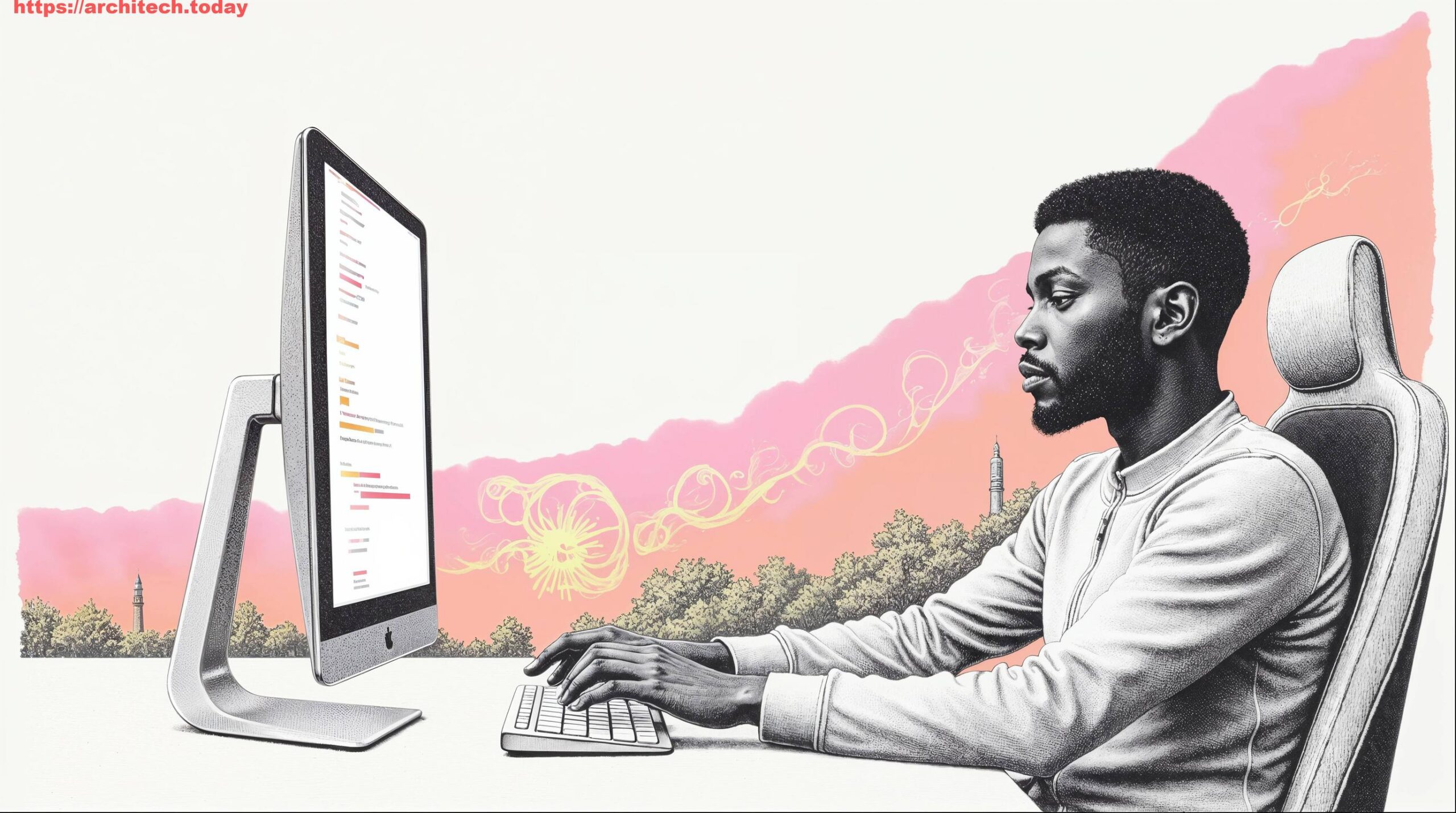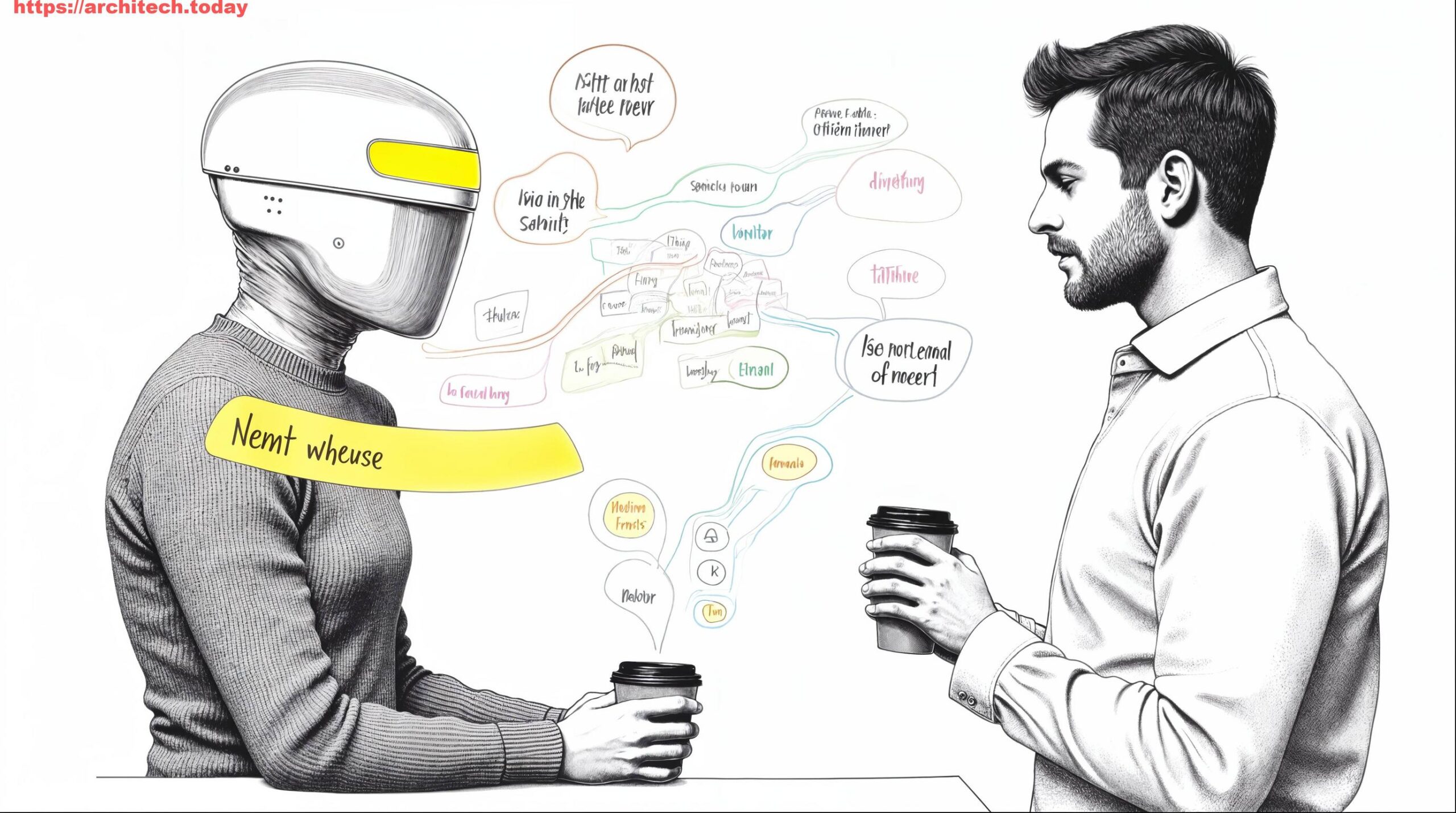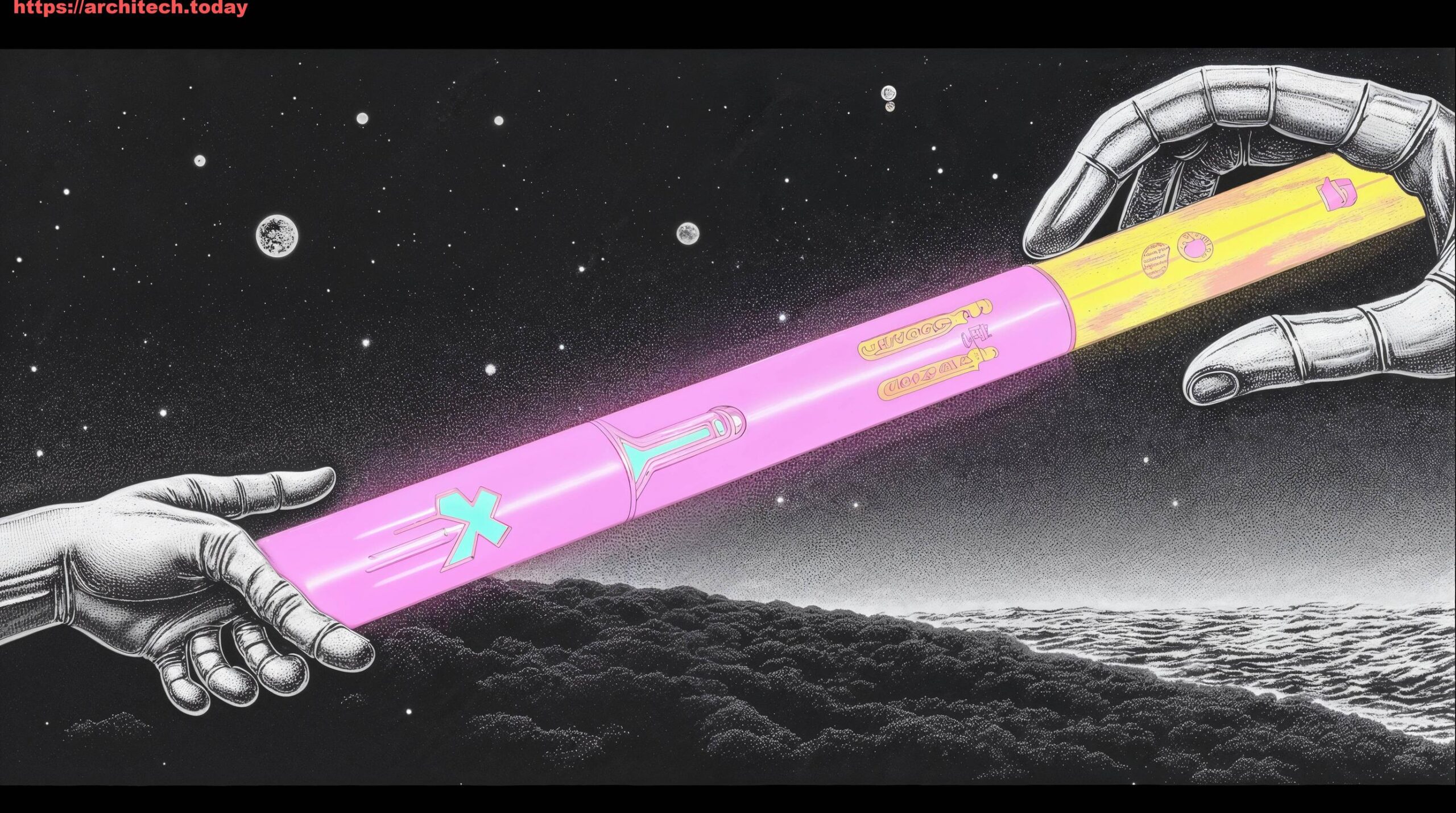Will AI Take Over Project Management? Your 2030 Career Compass
In 2030, is your project manager a human, an AI, or a bit of both? This isn’t a rhetorical question posed in a sci-fi novel; it’s the burning inquiry on the minds of countless project managers and business leaders navigating the accelerating pace of artificial intelligence (AI) integration into our professional lives. The rapid evolution of AI technology has sparked both excitement and apprehension across industries, and project management is no exception. From automating mundane tasks to offering predictive insights, AI is reshaping the very fabric of how projects are planned, executed, and delivered. But does this technological tide signal the obsolescence of the human project manager, or does it herald a new era of augmented efficiency and strategic focus?
For those of us who live and breathe project timelines, stakeholder meetings, and the delicate art of balancing scope, budget, and resources, the question of AI’s impact is deeply personal. Will our roles diminish into mere oversight, or will they elevate to new strategic heights? This thought-provoking piece aims to cut through the noise, offering a balanced, forward-looking perspective on the future of project management in an AI-dominated world. We’ll explore what AI is already doing, what it might achieve in the coming decade, and most importantly, what uniquely human skills will not just remain relevant but become even more critical. Prepare to gain insights that will empower you to not just adapt, but to thrive and redefine your impact in the evolving project landscape.
The AI-Driven PM Today: Automating the Mundane for Enhanced Efficiency
Even as you read this, Artificial Intelligence is already a silent, diligent partner in many project management offices around the globe, diligently chipping away at the routine tasks that once consumed countless hours. Gone are the days when a project manager was solely a glorified taskmaster, manually updating spreadsheets, chasing down status reports, and meticulously calculating resource allocations. Today’s AI-powered tools are transforming these operational burdens into streamlined processes, allowing project managers to focus on higher-value activities.
Consider the realm of automated scheduling and resource allocation. Platforms like Jira, Monday.com, and Asana now feature sophisticated AI integrations that can analyze project dependencies, predict potential bottlenecks, and even suggest optimal task assignments based on team availability and skill sets. Imagine uploading a complex project plan, and within seconds, AI generates an optimized schedule, highlighting potential conflicts before they even arise. This isn’t science fiction; it’s the reality for many organizations leveraging AI to prevent costly delays and ensure more efficient resource utilization.
Beyond scheduling, AI excels in predictive analytics for risk assessment. By analyzing vast datasets from past projects—including budget overruns, scope creep incidents, and communication breakdowns—AI algorithms can identify patterns and flag potential risks in current projects with remarkable accuracy. This foresight allows project managers to proactively mitigate issues, rather than react to crises. Furthermore, AI is increasingly handling routine communication, from drafting automated status updates to summarizing lengthy meeting transcripts. Tools like Notion AI and ClickUp AI can digest notes and generate concise reports, freeing up PMs to engage in more meaningful, nuanced discussions. Essentially, current AI in project management acts like a highly efficient administrative assistant, meticulously handling the data-heavy, repetitive tasks, thereby liberating the human project manager to engage in strategic thinking, problem-solving, and team leadership.
Project Management in 2030: A Glimpse into the AI-Powered Future
Fast forward to 2030, and the capabilities of AI in project management are set to expand exponentially, moving beyond mere automation to truly autonomous and intelligent assistance. Picture a project status meeting in 2030: your AI co-pilot, integrated seamlessly into your project management suite, provides real-time, dynamic insights. As a stakeholder raises a concern about a potential delay, the AI instantly re-calibrates the entire project timeline, suggests alternative resource allocations, and even projects the financial impact of various mitigation strategies, all while you’re still formulating your response. This isn’t just about data analysis; it’s about proactive, instantaneous strategic support.
We could see the emergence of fully autonomous agile sprints managed primarily by AI bots. These sophisticated AI project managers would be capable of breaking down epics into user stories, assigning tasks based on team member capacity and historical performance, tracking progress in real-time, and even self-correcting schedules based on daily stand-up inputs—all with minimal human intervention. Imagine AI-driven project simulations that can run thousands of scenarios in minutes, allowing project leaders to test the robustness of a plan against every conceivable variable, from supply chain disruptions to sudden market shifts. This level of foresight would transform risk management from a reactive exercise into a proactive, highly predictive discipline.
Moreover, AI’s prowess in communication simulation is set to become incredibly advanced. Beyond drafting emails, AI might be able to analyze communication patterns, predict stakeholder reactions to proposed changes, and even suggest optimal phrasing for sensitive negotiations. The AI could function as a “Chief of Staff” for projects, managing day-to-day operations, monitoring KPIs, and even identifying potential team conflicts before they escalate. This visionary future doesn’t suggest human irrelevance; rather, it paints a picture where project managers are freed from the granular, tactical execution to dedicate their energies to high-level strategy, fostering innovation, and navigating the complex human elements that define true leadership. The shift promises not just efficiency, but a profound transformation in how value is conceived and delivered.
The Irreplaceable Core: What AI Can’t Do (Yet)
As impressive as AI’s trajectory in project management appears, there’s a fundamental truth that offers reassurance to anxious project managers: certain uniquely human skills remain, for the foreseeable future, beyond the grasp of artificial intelligence. While AI can process data, predict trends, and even simulate conversations, it struggles with the nuanced, emotional, and intrinsically human aspects of leadership. Spoiler: The rise of our robot overlords as project managers has been greatly exaggerated.
Consider **leadership and vision**. An AI can optimize a schedule, but it cannot inspire a demotivated team to push through a challenging sprint. It cannot articulate a compelling vision that rallies diverse stakeholders behind a common, ambitious goal. True leadership requires the ability to navigate ambiguity, make judgment calls based on incomplete information, and infuse purpose into tasks—qualities deeply rooted in human intuition and experience. Similarly, **empathy and emotional intelligence** are critical. An AI can flag a team member’s declining performance based on data, but it cannot understand the underlying personal struggles, offer a word of encouragement, or mediate a heated interpersonal conflict with sensitivity. Human project managers excel at building trust, fostering psychological safety, and understanding the unspoken dynamics within a team, all of which are essential for collaboration and morale.
**Creativity and innovation** also stand as human strongholds. While AI can generate novel combinations of existing data points, it cannot truly conceptualize a groundbreaking solution to an unprecedented problem, nor can it spontaneously pivot a project’s direction based on an intuitive leap that defies logical patterns. Furthermore, **nuanced stakeholder management and negotiation** are inherently human endeavors. Building genuine rapport, reading body language in a high-stakes negotiation, influencing decisions through subtle persuasion, and navigating complex organizational politics require a depth of social intelligence that AI simply doesn’t possess. Finally, **ethical judgment and cultural nuance** are exclusive to human consciousness. AI operates on algorithms and data; it cannot grasp the moral implications of a decision, nor can it intuitively understand the intricate cultural norms that shape how projects are perceived and executed across different global contexts. In essence, AI is a powerful calculator; humans are the mathematicians designing the complex equations and interpreting the results, infusing them with meaning and purpose.
The Evolving PM Role: From Taskmaster to Strategic Orchestrator
Given AI’s growing capabilities in automating tasks, the project manager’s role is poised for a profound and exciting evolution. The future PM will be less of a taskmaster bogged down by administrative overhead and more of a strategic orchestrator, a facilitator of human potential, and a keen interpreter of AI-generated insights. This isn’t about replacement; it’s about radical augmentation and elevation.
Imagine a project manager in this evolved role. Instead of spending hours tracking individual deliverables and compiling status reports—tasks effortlessly handled by AI—they are now focused on cultivating a high-performing team, fostering an environment of innovation, and aligning project outcomes directly with overarching business objectives. They become the “AI conductor,” ensuring the seamless integration of intelligent tools, interpreting their outputs, and translating complex data into actionable human strategies. This shift liberates the PM to truly lead: to coach team members, resolve complex cross-functional conflicts that defy algorithmic solutions, and act as the crucial bridge between technical execution and senior leadership vision.
Consider the project manager who uses AI to automatically monitor a project’s critical path, identify potential resource constraints, and even suggest pre-emptive adjustments to the schedule. With these operational details handled, the PM can dedicate their time to high-level strategic thinking, exploring new market opportunities, or developing innovative solutions that genuinely differentiate their product or service. This empowers them to transition from a focus on “doing things right” (which AI excels at) to “doing the right things” (which requires human strategic foresight). As industry bodies like the Project Management Institute (PMI) increasingly discuss, the future PM will be defined by their ability to leverage technology for efficiency, while simultaneously honing their uniquely human capabilities in communication, negotiation, ethical decision-making, and strategic foresight. They become the chief motivator, the vision-caster, and the ultimate guardian of human-centric value delivery.
Future-Proofing Your Project Management Career in the AI Era
For project managers feeling a flicker of anxiety about AI’s advance, the most empowering response is not to resist, but to strategically embrace and adapt. Just as the invention of the automobile didn’t eliminate the need for transportation but transformed it, AI won’t eliminate project management; it will redefine what it means to be a truly valuable project manager. To future-proof your career in this rapidly evolving landscape, think of yourself as an artisan refining their craft, leveraging modern tools to create masterpieces that were previously unimaginable.
The first step is to **embrace AI tools** as your most powerful co-pilots. This means actively learning about the latest AI applications in project management, experimenting with intelligent software, and understanding how to effectively integrate AI-generated insights into your decision-making processes. Treat AI not as a competitor, but as a force multiplier that amplifies your capabilities and frees you from the mundane. Don’t be a “dial-up modem in a 5G world”—upgrade your skillset.
Secondly, **double down on uniquely human skills**. While AI excels at logic and data, it cannot replicate emotional intelligence, creativity, ethical judgment, or nuanced communication. Sharpen your leadership abilities, cultivate your empathy, become a master of negotiation, and foster your strategic thinking prowess. These are the “soft skills” that will become the “power skills” of the future project manager, providing the irreplaceable human touch that drives team cohesion and stakeholder satisfaction. For example, while an AI might flag a project risk, it’s the human PM who builds consensus around a solution, motivates the team to implement it, and manages the inevitable interpersonal dynamics.
Thirdly, elevate your perspective to **strategic thinking**. With AI handling the tactical details, your focus should shift to understanding the larger business context, identifying opportunities for innovation, and ensuring that every project delivers tangible strategic value. This means moving beyond just delivering “on time and on budget” to delivering “impact and competitive advantage.” Finally, commit to **continuous learning**. The AI landscape is evolving at breakneck speed; staying updated on new technologies and methodologies is paramount. Engage in professional development, network with peers, and actively seek out opportunities to apply new AI-driven approaches. By doing so, you transform from a reactive participant to a proactive architect of your project management future.
The Synergy of Human & Artificial Intelligence: A Powerful Partnership
The debate isn’t whether AI will take over project management, but rather how deeply and effectively humans and AI will partner to revolutionize it. The future of project management isn’t a zero-sum game where one intelligence replaces the other; it’s a symbiotic relationship, a powerful collaboration that amplifies human potential and optimizes operational efficiency. AI is poised to handle the vast, data-intensive tasks, providing unparalleled analytical power and automating the mundane. This allows the human project manager to ascend to a role of higher strategic importance, focusing on the intangible yet invaluable aspects of leadership, innovation, and human connection.
Imagine a project world where AI bots meticulously track every deliverable, predict every potential bottleneck, and offer real-time adjustments, while human project managers focus on fostering team morale, negotiating complex agreements, inspiring creativity, and navigating the intricate web of human emotions and motivations. This “bit of both” scenario is where true organizational agility and impactful delivery will reside. The goal isn’t automation for its own sake, but augmentation—to create an augmented human project manager who is more insightful, more effective, and more capable of delivering exceptional value than ever before.
The human element—our capacity for empathy, ethical judgment, strategic foresight, and inspirational leadership—will remain the bedrock upon which successful projects are built. AI will provide the intelligence; we will provide the wisdom. This powerful synergy promises a future where project managers are not just surviving, but thriving, leading more meaningful and impactful careers. Are you ready to embrace this evolution and redefine your impact in the project landscape, becoming the strategic orchestrator of tomorrow’s triumphs?








No comment yet, add your voice below!